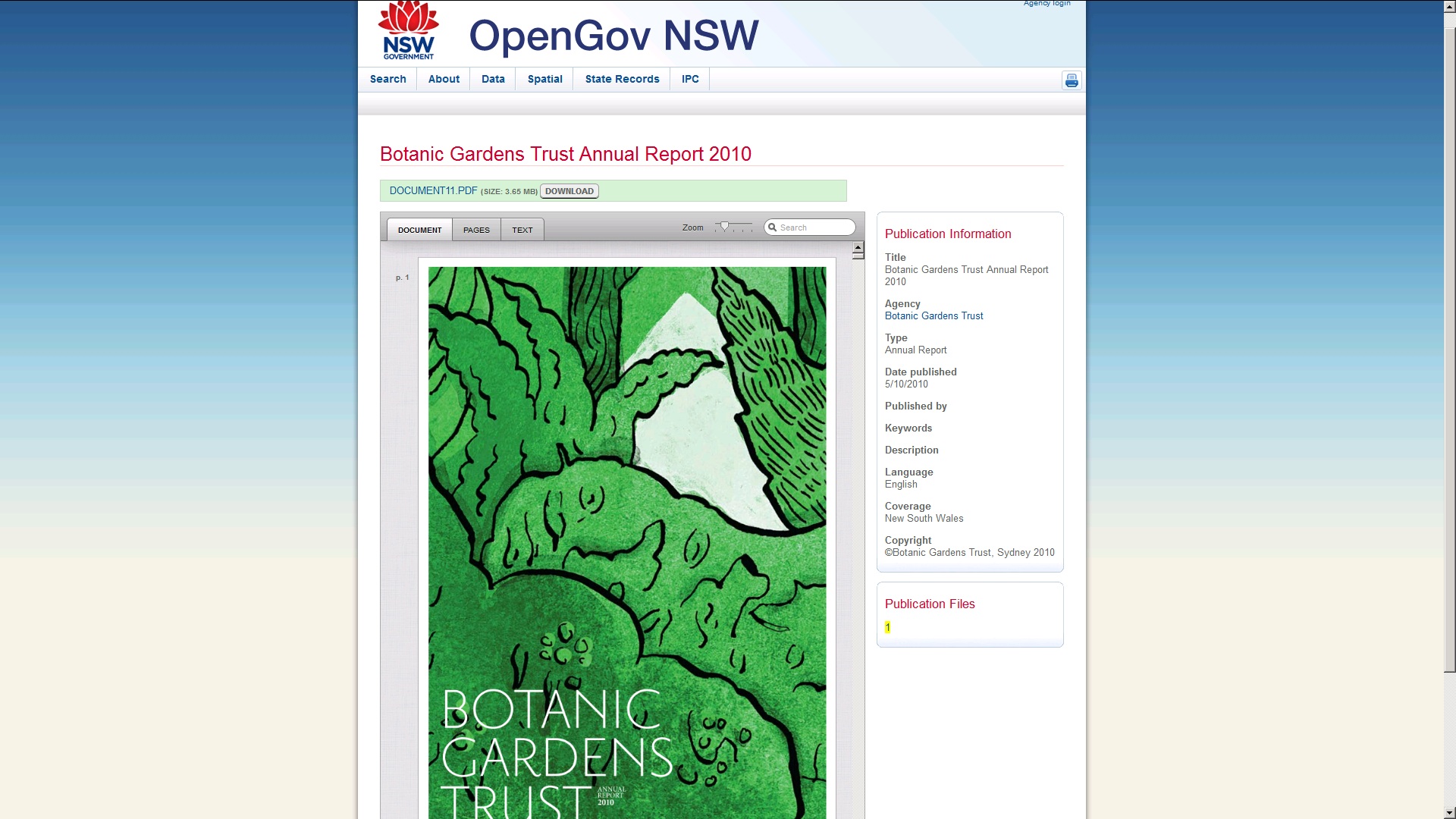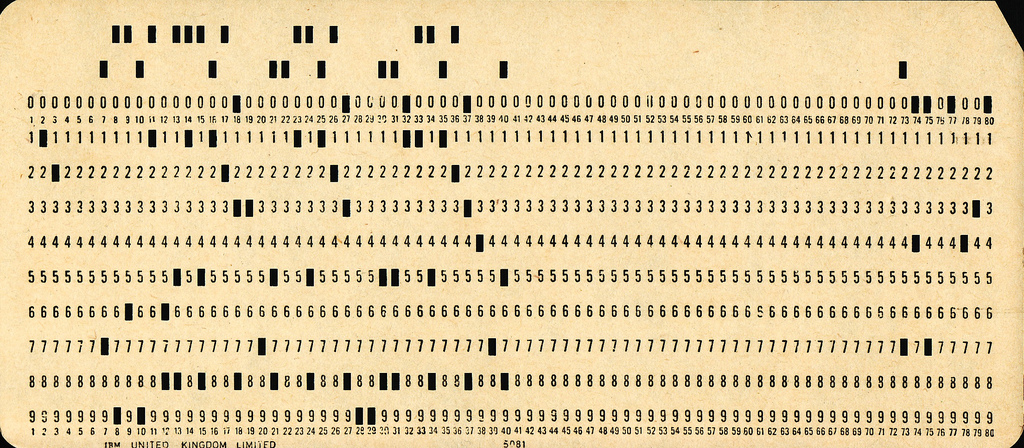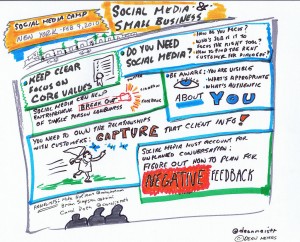Sharing ideas to solve one of life’s great mysteries: how to successfully implement an EDRMS April 4, 2013 No Comments
This week the members of the EDRMS Implementers Discussion Group met for the first time to talk about their organisations’ experiences in implementing systems to support digital recordkeeping. This is a new group facilitated by State Records to promote the sharing and re-use of ideas, tools and approaches for implementing EDRMS (electronic document and records management systems).
Members of the group engaged in a lively discussion about some of the challenges and opportunities presented by the move to digital recordkeeping. In the spirit of sharing, we thought we would summarise the discussion and some of the solutions to particular challenges proposed by members.
Membership of this group is open to anyone in the NSW public sector who is keen to share their organisation’s experiences of transitioning to digital recordkeeping. If you would like to join this group, please contact us at govrec@records.nsw.gov.au.
Introducing OpenGov NSW April 2, 2013 No Comments
I was pleased at the last Records Managers Forum to be able to talk about a recent initiative from State Records, OpenGov NSW. OpenGov NSW is a searchable online repository for information published by NSW Government agencies, including Annual Reports, other publications and open access information released under the Government Information (Public Access) Act 2009 (GIPA Act).
The published information it contains is both contemporary and historical, and currently runs at over 2000 titles. Some of the publications of note in OpenGov include a complete set of Government Gazettes 2001-2013 19th and early 20th century digitised Annual Reports for the Department of Public Works and the Police Child Welfare Department Annual Reports from the mid 20th century, and plenty of current NSW Government published information such as 2011-12 Annual Reports, strategic plans and policy documents.
Better access to government information
OpenGov directly supports the NSW Government’s commitment to improved access to government information. Goal 31 of the State Plan 2021 is ‘Improve government transparency by increasing access to government information’. An action that was defined to achieve this goal was to ‘expand the Publications NSW website to include access to all agency information published as ‘open access’ under GIPA.’ OpenGov is the new successor to Publications NSW. Read the rest of this entry »
Why you need social media information governance frameworks March 26, 2013 No Comments

http://www.flickr.com/photos/25738256@N00/5348250582
In mid March I spoke at State Records’ regular Records Managers Forum about what you need to do to implement effective social media recordkeeping in your organisation.
Other presentations at the Forum were:
- Dawn Routledge and Sonya Sherman, Information, ICT Policy, Department of Finance and Services – Developing the NSW information management framework
- Cassie Findlay, Project Manager, Digital Archives, State Records NSW – OpenGov NSW web site initiative
Podcasts and slides for each of our presentations are on the Future Proof Podcast page, but I thought I would post a short summary of some of the key points from my talk here.
Metadata, social media and business systems – lots of interesting questions as usual at State Records NSW in January and February 2013 March 7, 2013 No Comments
Here are some of the interesting questions we were asked in January and February about a whole host of digital recordkeeping issues. If you have any feedback for us on our advice, please don’t hesitate to let us know.
- How can I apply metadata to social media records?
- We used the government’s online recruitment tool Taleo to manage all aspects of our recruiting operations. The applications received for each position advertised are kept and managed in Taleo and not kept on the recruitment files. Can you please advise if this is acceptable? Also, can you please advise what other type of documents are to be kept on the recruitment file, knowing that we use Taleo?
- We have a new business system – how do I know if it needs to be compliant with the Standard on digital recordkeeping?
- Are there any issues if I buy an off-the-shelf software package and then customise it a lot?
- Should my organisation use Google Groups as an official business communication tool?
- We scan in black and white, but a member of our legal team has said that for some of their work, different coloured pens or stamps have important meaning. What should we do?
- Are your podcasts available via iTunes, or downloadable to a mobile or other device?
- We are implementing a new electronic business system to manage financial transactions and property management. Records about these processes will be made and managed in the system. Under the Standard on digital recordkeeping, do we need to do a metadata mapping for this system? Read the rest of this entry »
Assessing information risks in business systems and working out what to do about them February 20, 2013 3 Comments
 Yesterday we ran another of our Managing recordkeeping risk in business systems workshops. It has been a while since I have posted an update about this workshop and we had a really great group in yesterday with lots of interesting discussions, so here is a summary of some of the key points we talked about. Read the rest of this entry »
Yesterday we ran another of our Managing recordkeeping risk in business systems workshops. It has been a while since I have posted an update about this workshop and we had a really great group in yesterday with lots of interesting discussions, so here is a summary of some of the key points we talked about. Read the rest of this entry »
Research data requires good recordkeeping: Lessons from the Sydney Diet Heart Study and #IDCC13 February 14, 2013 No Comments
Scientific data, research data, data retention, big data – just recently it seems like everyone is talking about data of one sort or another. Last week CBC News reported a fascinating tale of lost and inaccessible data: ‘The case of the missing data’. 
In it, a US scientist looking into heart disease tracked down some all but forgotten data collected in the early 1970s as part of the Sydney Diet Heart Study – left in a box at the back of a researcher’s garage.
The data in this case was on magnetic tape and in a mysterious format, later found to be punch card data that had been converted into a newer computer language for tape storage. But all the effort that went into its recovery proved to be worthwhile with the information on the old clinical trials that was retrieved yielding vital evidence as to the effects of Omega-6 acid on heart health, filling a critical gap in the literature.
The story has been used to highlight a problem that many scientists are concerned about; the failure to make the results of clinical trials and studies like the Sydney Diet Heart Study permanently accessible to the scientific community. Without the sharing of this data, the evidence base on which research is conducted is flawed, leading to missed opportunities and wasted time in medical research and other fields of scientific endeavour. Read the rest of this entry »
Consolidated exposure draft of Strategies for managing social media information now available for comment – comments due 15 March February 12, 2013 No Comments
 State Records consolidated exposure draft of Strategies for managing social media information is now available for comment in PDF form.
State Records consolidated exposure draft of Strategies for managing social media information is now available for comment in PDF form.
The deadline for comments is Friday 15 March 2013.
Strategies for managing social media information: How to keep records of government social media business February 8, 2013 2 Comments
State Records has developed a draft set of advice called Strategies for managing social media information.
With so much government business taking advantage of the opportunities offered by social media, this advice explores the issues, opportunities and options for managing social media information.
This guideline contains a range of strategies, examples and case studies to help you determine:
- what business information is being generated by your corporate social media accounts
- the risk and long term business value of this information
- the different recordkeeping strategies that should be used to capture and keep social media records
- how long different types of social media records need to be kept.
The guidance has lots of advice and examples but we would love your feedback to make it is as practical and as helpful as it can be. We would particularly like feedback from frontline staff working with social media. We genuinely want all comments and advice, big and small, particularly on issues we have missed or misinterpreted. We would also love feedback on how we can better structure this guidance so that it is clear and easy to use.
We will upload a PDF next week with the consolidated guidance but in the meantime, here are a few posts outlining our Strategies for managing social media information.
Strategies for managing social media information – determining which records need to be captured No Comments
If your organisation is:
- pushing business information through social media channels
- receiving business-related communications through social media
- building an official business presence in any social media system
then your organisation has legal (including under the State Records Act) and business requirements to be able to account for the business it is transacting via social media.
Strategies for managing social media information – some retention and destruction issues No Comments
A key way of knowing what information management strategy you should deploy for your social media is by identifying the legal requirements that outline how long your specific social media records need to be kept.
If your information only needs to be kept for short periods of time, your information management requirements will be quite minimal. If however your information needs to be kept for long periods of time, you will need to seriously consider the social media information strategy you will deploy to keep and preserve your information.
State Records is in the process of expanding its advice on social media retention rules, but in the interim, here is some initial advice on how long you need to keep different types of social media records for.






